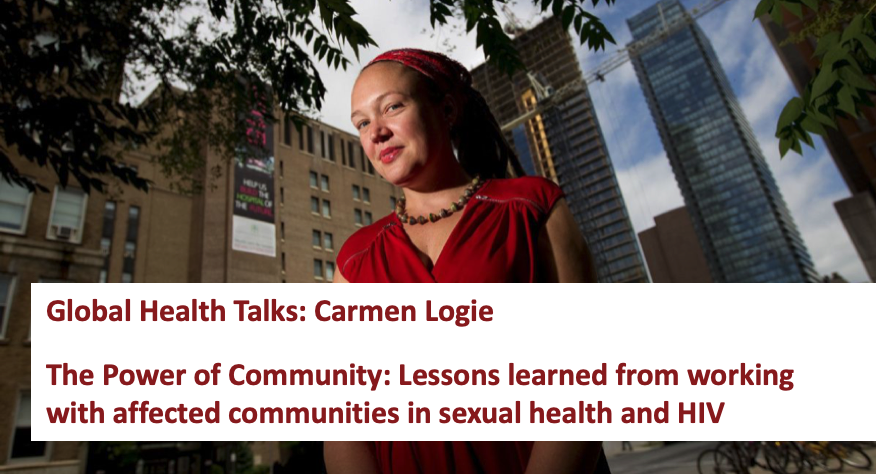Universitetsavisen
Nørregade 10
1165 København K
Tlf: 21 17 95 65 (man-fre kl. 9-15)
E-mail: uni-avis@adm.ku.dk
Foredrag
Foredrag — This talk will explore how lessons learned from community-based global HIV research can inform our approach to conceptualizing and implementing research and practice with and for communities who are often marginalized and excluded from social, political, economic systems.
Date & Time:
Place:
Room 5.0.22, Centre for Health and Society (CSS), Øster Farimagsgade 5A, 1014 Copenhagen K
Hosted by:
Danish Centre for Migration, Ethnicity and Health and School of Global Health.
Cost:
Free
The Danish Centre for Migration, Ethnicity and Health and School of Global Health are pleased to welcome Carmen Logie for the next Global Health Talks:
THE POWER OF COMMUNITY: LESSONS LEARNED FROM WORKING WITH AFFECTED COMMUNITIES IN SEXUAL HEALTH AND HIV
ABOUT THE TALK:
This talk will explore how lessons learned from community-based global HIV research can inform our approach to conceptualizing and implementing research and practice with and for communities who are often marginalized and excluded from social, political, economic systems. Applying an intersectional stigma perspective, examples from three HIV research projects are explored: community-health worker delivered HIV prevention with internally displaced women in Haiti; arts-based self-acceptance intervention with African, Caribbean and Black transgender women in Canada; and HIV testing with urban refugee and displaced youth in Uganda. This talk centers the importance of storytelling, love and solidarity, and critical hopefulness in HIV research.
ABOUT CARMEN LOGIE
Dr. Carmen Logie is the Canada Research Chair in Global Health Equity and Social Justice with Marginalized Populations and an Associate Professor at the Factor-Inwentash Faculty of Social Work, University of Toronto. Dr. Logie’s research program advances understanding of, and develops interventions to address, stigma and other social ecological factors associated with HIV and STI prevention and care. She is particularly interested in understanding and addressing intersectional stigma and its sexual and reproductive health impacts, with a focus on HIV and STI. Her current research focuses on HIV/STI prevention, testing and care cascades in Canada, Uganda, Brazil and Jamaica with people living with HIV, refugee and other displaced youth, LGBT communities, sex workers, Indigenous youth, and persons at the intersection of these identities.
All are welcome. Please click ‘attend’ on Facebook if you are joining.
The talk will be in English. The room/venue is wheelchair accessible.
